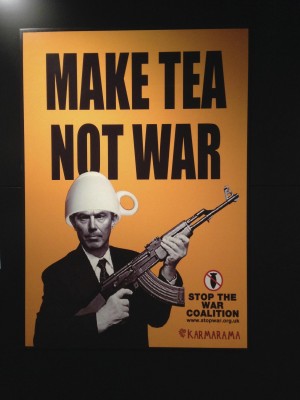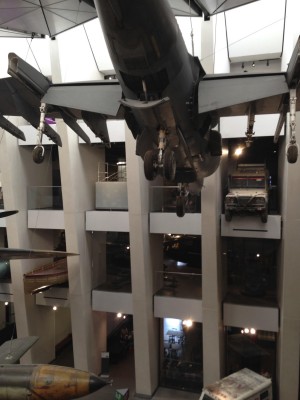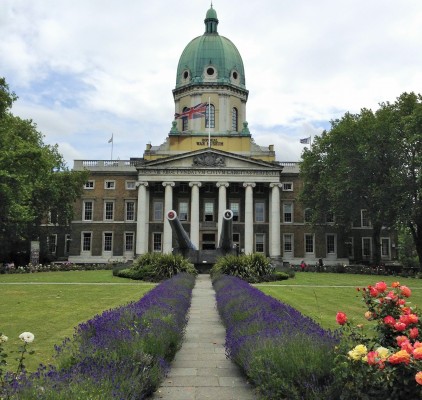Imperial War Museum
August 4, 2015
The Imperial War Museum was not originally on my list of attractions to visit in London. I would classify myself as a ‘Make Tea, Not War’ kind of girl and could have never imagined that a war museum could have peaked my interest. When we first arrived at the museum, I was immediately drawn to the lovely landscaping. Two security guards scoffed as I ran past the large cannons and squealed, admiring colorful flowering bushes. It was clear that I was not their typical visitor.

I was initially overwhelmed when I walked into the museum and didn’t know where to start since there was no clear organization. The “A Family In Wartime” exhibit attracted me first, which educated visitors on what life was like for Londoners during the Second World War. My favorite part of the exhibit were the recreations of the 1940s rooms. The kitchens even featured vintage 1940s item packaging and appliances. These large, engaging displays helped to make history more tangible, and also seemed to please the hoards of school children there on class trips.
I walked briskly past a strange glass display cabinet filled with white and plaid button down shirts (I still have the slightest clue as to the significance of these shirts), and was drawn to a large piece of metal in the center of the room. At first glance, the twisted-up metal was unrecognizable. However, after reading the description, I learned this was a piece of metal recovered from the Twin Towers after the September 11th attack on the World Trade Center. It was eerie seeing something so culturally significant right in front of my eyes. Much to my surprise, the display drew absolutely no attention from any other museum visitors.
The highlight of my visit to the Imperial War Museum was the award winning ‘Holocaust Exhibition,’ which featured iconic items from the period. Diaries, photographs and clothing items had an immediate effect on visitors, especially since they were accompanied by first-person testimonials from survivors. The exhibit was organized chronologically and included interviews that helped visitors understand how people felt at each moment in time. The stories were chilling and I found myself walking away in tears, after hearing one survivor described her father’s murder: “And that was the life of my father.” That simple sentence left me speechless and emotional.

Room after room, I found myself reading every word of every display, as there was an unspeakable immediacy to every corner of the exhibition. The highlight of the exhibit was at the end, when the survivors shared their final thoughts on how they endured such an unimaginable tragedy and the effect their past has on their present life. Each survivor shared poignant reflections, but I was most affected by a survivor who explained how important it was for them to share their story with their children and others. “I do not want their future to be my past.” It was an inspiring way to end my three hour journey.
The Imperial War Museum provides exhibits that can interest any member in a group. The museum was even home to an exhibit called “Fashion on the Ration: 1940s Street Style” for the fashion lover. Admission to the museum is free, with the exception of certain ticketed exhibits, making it a wallet friendly attraction. With highlights like a piece of the Berlin Wall, I would keep an eye out for any other fascinating pieces that may be hiding there.
I left the museum still loving tea far more than I will ever love war, but my visit to the museum helped me discover a passion and interest I never knew existed in me. The everyday lives of those in times of war is an incredible subject to study and learn about.
Imperial War Museum
Lambeth Rd, London SE1 6HZ
Station: Lambeth North
Line: Bakerloo










